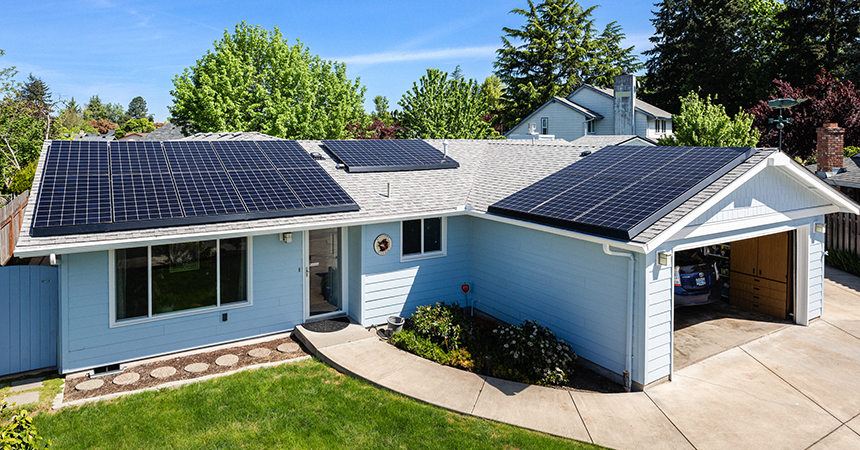
This is the third in a series of posts on energy resilience. The first two looked at how solar + storage can help make homes more resilient to outages and explored how energy resilience can be scaled up to benefit entire communities. This post looks at how energy resilience efforts contribute to Oregon’s energy future through distributed renewables.
As climate challenges intensify, energy resilience is becoming increasingly critical for communities across Oregon. One powerful approach to building this resilience lies in distributed renewable energy systems. Unlike traditional large power plants, distributed renewables are small-scale systems, such as solar panels with battery storage, installed directly on homes, businesses and local facilities. These localized energy sources empower communities by delivering clean, reliable power and bolstering resilience against power outages and disruptions.
By placing power generation near consumers, distributed renewable energy can reduce costs and improve reliability. Power is generated on-site, which is less expensive due to lower transmission costs. Additionally, traditional electricity systems lose a portion of generated power during transmission and distribution over long distances. Distributed renewable energy minimizes these losses by producing energy close to where it’s consumed. When paired with battery storage, renewable energy systems can also keep the lights on and critical systems running when the power goes out, like a refrigerator to store temperature-sensitive medications.
Take Southeast Portland, for example, where a solar + storage project – or solar paired with a battery – in an affordable apartment community now provides backup power during outages and supplies clean energy throughout the year. This model is a promising glimpse into Oregon’s future, where homes, businesses, wastewater treatment plants and other community facilities could all be part of a networked, resilient energy system.
Distributed energy sources contribute to Oregon’s clean energy goals, which include achieving 100% emission-free electricity by 2040. These smaller, community-based projects complement larger-scale renewable installations and accelerate progress toward this ambitious target.
Energy Trust supports renewable energy projects at homes, businesses, cities and schools with incentives for solar installations, technical assistance and tailored solutions. This support is vital to making clean, reliable energy more accessible and affordable to communities, empowering consumers, and supporting a sustainable energy future.
Learn more about Energy Trust’s support for renewable energy projects for homes, businesses, farms and municipal buildings.
